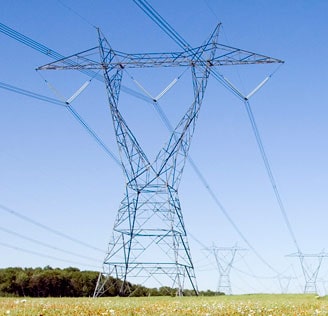The weighted average Hourly Ontario Energy Price (HOEP) is currently 8.6¢/kWh for the month of August – up 0.3¢/kWh or 3.5% versus last week’s settle. The primary driver of this price hike is the increased use of expensive natural gas-burning generation, in response to an uptick in demand. Natural gas-burning supply increased by 3.4% (2,435MW) over the course of this past week, while baseload generation such as nuclear and hydro both lowered their output to an average of 10,265MW (-0.3%) and 4,005MW (-0.6%), respectively. Wind, solar, and biofuel reduced week-over-week output by 12.3% (-691MW), 3.2% (-105MW), and 0.0% (-46MW), respectively. With the first Global Adjustment estimate at 4.9¢/kWh, August’s total market price is at 13.5¢/kWh, as of today.
Alberta’s weighted average Power Pool Price for August is currently $264.35/MWh. Relative to last week’s price of $221.87/MWh, this is an increase of $42.48/MWh or 19.1%. Volatility continues to be an issue this month, with hourly settles of over $700/MWh and numerous daily settles hitting the $300/MWh mark; as a result, the average weekly price was $368.34/MWh. While generator outages at Path 2, Keephills 2 and Sundance 6 partially contributed to the price spikes, the recent heatwaves in the province, in conjunction with minimal levels of wind generation (increasing reliance on natural gas-fired generation), were the predominant market drivers.
Germany’s Chancellor, Olaf Scholz, was in Canada this week to meet with Justin Trudeau, to sign a “joint declaration of intent” to establish a “Trans-Atlantic Canada-Germany supply corridor,” for Canada to begin exporting hydrogen to Germany by 2025. There has been much excitement over hydrogen being key to a greener future energy mix, but, of course, Germany’s energy needs are seriously dire right now in 2022. When asked by CBC’s host of Power & Politics, Vassy Kapelos, about Scholz’ conversation with Justin Trudeau around the export of LNG, Scholz tried to remain diplomatic, saying Germany and Canada are friends and you don’t tell your friends what to do. When pressed, however, he admitted he would love it if Canada would export LNG to the EU; however, the business case for doing so was lacking. Of course, Scholz was referring to the federal and provincial regulatory constraints involved in doing anything of the sort.
– Mark Ljuckanov, Energy Advisor / Ryan Cosgrove, Energy Data Analyst








Add comment